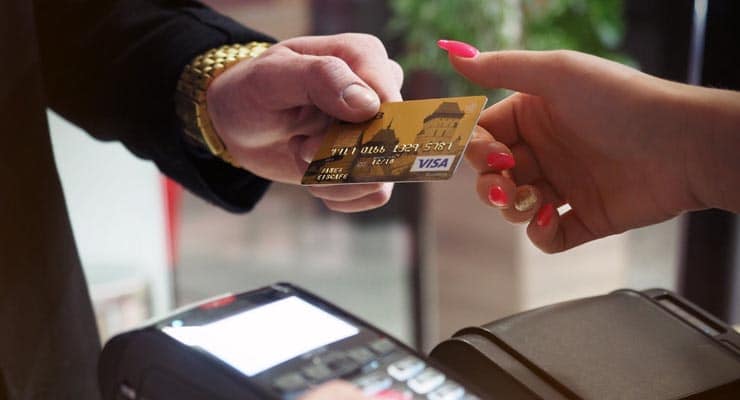Should you request receipt to avoid cashier cash back scam? Fact Check
A viral message on social media implores readers to always ask for a receipt when shopping, since failing to do so will likely result in the cashier furtively initiating cashback on the customer’s card and pocketing the money.
 MOSTLY FALSE
MOSTLY FALSE
An example of the rumour as it appeared on Facebook can be seen below.
New Scam: When a cashier asks if you want your receipt, say YES and take it. If you say NO, they hit the “cash back” button.
Firstly, in the interests of sound habits, we do generally recommend requesting a receipt after you make a purchase. Receipts have the obvious advantage of allowing a customer to make a return if a product turns out to have a defect. They can also afford a customer added protection if an item was – for example – mispriced or accidentally scanned twice, and they can also help protect against isolated (and quite rare) cases where a cashier intentionally adds additional items to a customer’s bill which the customer did not request. On the same note, this is why we also recommend paying attention to your bank statements when you receive them.
With that said, there is a specific claim here, and that is you should always request a receipt to avoid cashier’s secretly pocketing your money, and that claim we rank mostly false.
Sponsored Content. Continued below...
Rumours of new or emerging “cash back” scams have been floating around since 2004 when a baseless accusation accused US retailer Wal-Mart of pocketing cash back money, but it was largely debunked simply because of the fact that their checkout system – like the majority of systems in the US – relied on the customer themselves requesting cash back on the device they used to swipe or authenticate their card.
And so this rumour fails on that very simple reality. With checkout systems around the globe becomingly progressively sophisticated, it has become increasingly rare to encounter such a system where it is the cashier who swipes/inserts a customer’s card and has the ability to request cash back themselves. It would also be incredibly rare to find a system that has a cashier facing “cash back button”, as stated in the above warning. Of course a cashier could conceivably distract the customer at just the right time and initiate cash back themselves on the customer-facing device, but this would be exceptionally risky and as such not a scam that’s likely to ever occur.
Additionally, checkout systems typically display the total amount to be charged onto a card – including cash back – at the customer, whether it’s displayed on a handheld device or on a till/register display, so a customer would not need a receipt to potentially spot the scam. Again this would make such a scam inherently risky and as such uncommon.
Sponsored Content. Continued below...
It should be noted that none of this applies to contactless payments which are now one of the most common methods of payment in Europe since cash back cannot be initiated on a contactless purchase.
Another issue with the warning above is that it fails to mention a specific store, city, state or even country, and instead seems to tarnish the entire retail industry with the same baseless accusation. While many retailers do now offer the customer the choice of having a receipt, this is likely down to either environmental concerns (less paper used) or economic concerns (less money spend on till roll) not because the cashier is trying to scam you out of your hard earned money, as implied by the warning.
It can also certainly be argued that the assertion that a cashier will covertly “hit the cash back button” does a big disservice to those that do work in the retail industry, of which the vast majority of honest and hardworking.
As we said, we do recommend requesting your receipt, especially so if you do happen to stumble on some antiquated checkout system where your card is taken from you and you don’t see any display tallying your total. But spreading this overly broad and misleading warning isn’t particularly helpful to anyone.
Continued below...
Thanks for reading, we hope this article helped, but before you leave us for greener pastures, please help us out.
We're hoping to be totally ad-free by 2025 - after all, no one likes online adverts, and all they do is get in the way and slow everything down. But of course we still have fees and costs to pay, so please, please consider becoming a Facebook supporter! It costs only 0.99p (~$1.30) a month (you can stop at any time) and ensures we can still keep posting Cybersecurity themed content to help keep our communities safe and scam-free. You can subscribe here
Remember, we're active on social media - so follow us on Facebook, Bluesky, Instagram and X
